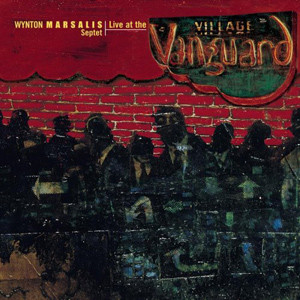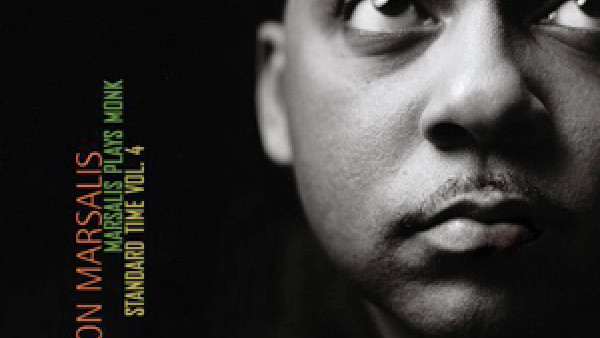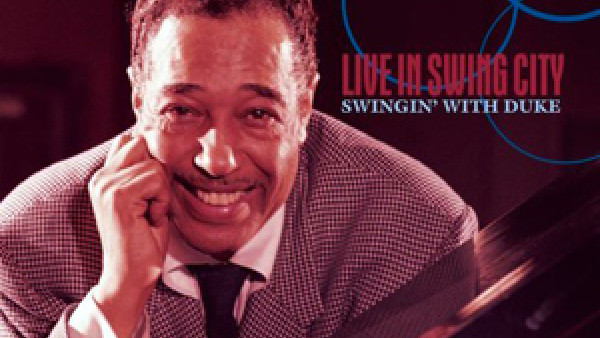Wynton Marsalis: Jazzman on the Run
SOMETIME during the last year, those of us who were on the mailing list of Columbia Records ran for cover. It was raining CD’s by Wynton Marsalis. By the end of 1999, Mr. Marsalis had released some 20 hours of music on 15 CD’s, a heroic effort called “Swinging Into the 21st” that still has not emptied Columbia’s vaults of his material. There has never been anything like that sort of effusion in the history of jazz, and to achieve it Mr. Marsalis cut his earnings per album from $1 million to $100,000.
The move produced some head scratching among jazz industry watchers, who wondered what could possibly have inspired it. Some thought it might be a way of getting Mr. Marsalis out of a contract, making him a free agent in the marketplace; in fact, Mr. Marsalis has been without a contract at Columbia since 1998. Others speculated that Mr. Marsalis was trying to upstage his brother Branford, who had been appointed creative consultant of Columbia Jazz. Still others saw an effort to block the release of work by rival artists on the label. And some believe Mr. Marsalis has a need to be in the news and wanted to define in his own manner the changing of the millennium.
Whether any of this conjecture has a basis in fact, the deluge of 15 CD’s provides an opportunity to assess Mr. Marsalis’s career, its laudable ambition as well as its flaws. Over the last 20 years, through his considerable skills as a conservator and popularizer, he has become the public face of jazz in America. Privately, Mr. Marsalis has used Duke Ellington as a standard against which he judges himself, and he has produced an immense amount of work for someone who has not yet reached 40. Like Ellington and John Coltrane, he seems to be willing himself into greatness. And like a man suddenly conscious of his mortality, Mr. Marsalis seems intent on pouring everything he knows into his art. The upshot is that while showing the breadth of his knowledge and interests, he has not always achieved what he set out to achieve.
Mr. Marsalis’s penchant for being the center of attention isn’t anything new. Even as a teenager in youth orchestras in his native New Orleans he was regarded as a symbol of a renaissance in the city’s jazz scene. By the time Mr. Marsalis started touring in Art Blakey’s band in the late 1970’s, jazz critics were passing around reports of the blazing young trumpeter, as yet unrecorded, whom they had heard at a jazz festival here or there. (Many of these same critics would later savage him with a vengeance that at times seemed personal.) Mr. Marsalis, intentionally or not, has always had a way of making himself felt as living, breathing history on two feet.
In the early 1980’s, when he released his first recordings, he made sure one of them was classical, showing off his obvious gifts as a musician and underscoring his timing — he appeared, remember, during a period in which speculation over the death of jazz was rampant. In the intervening 20 odd years, Mr. Marsalis has seen himself both sainted and vilified. He has gone from being the child mastermind of a musical revolution in mainstream jazz to something of an irrelevancy, his glory days as the leader of the vanguard long over and his innovations codified. He has gone from being a young musician at play in the fields of jazz to the artistic director of Jazz at Lincoln Center. And though Jazz at Lincoln Center does not have much effect on jazz’s daily workings, it has arguably more access to, and influence over, the workings of American high culture than any other such institution.
Along the way, Mr. Marsalis has championed a vision of jazz that is at the same time deeply radical and deeply conservative, placing the music securely in black American culture. He took his cues from the writers Ralph Ellison and Albert Murray, arguing that black culture deserved investigation and elaboration. Mr. Marsalis applied those ideas to the music of his elders with a real understanding of their achievements. His most influential album is Black Codes From the Underground his near operatic Blood on the Fields is about slavery; and a three-CD set called Soul Gestures in Southern Blue takes on both jazz’s fundamentally black nature and the political and social relationship between African-American and the larger American culture.
The emphasis on black culture has not made Mr. Marsalis popular, in part because Negritude and the black idiom are not particularly popular in some intellectual circles these days; one need only look to recent books emphasizing the contributions of whites to jazz and the grant-giving organizations’ shyness of mainstream jazz musicians. Mr. Marsalis’s stand at Lincoln Center, his celebration of mostly black composers and band leaders, has led him into conflict with critics who have tried to shame the program into their own vision of jazz.
But Mr. Marsalis’s dedication to the conservative strain that runs through jazz — the idea that what came before you has to be absorbed before you can move on — is the defining quality of his work, and it has kept him in a nearly permanent state of learning. Mr. Marsalis’s early understanding of Miles Davis, and later of Armstrong, Coltrane and Ellington, has dictated his various changes of styles. But his synthetic compositions, sometimes brilliant, in which the styles of his heroes are piled up on one another, are occasionally obscured by the shadows of the originals. It is the curse of all who wander into the desert of pastiche.
In Mr. Marsalis’s adherence to the black idiom, he became a bit like the painters Thomas Hart Benton and Grant Wood: a fine craftsman who clearly had something to say about the American condition — in fact, was obsessed with it — and who had applied his intellectual power to one theme, in his case black American culture. But that rich well has seemed at times to imprison him, as if he were spending so much time with the rhetoric of an idea that he was not letting his innate musicality shine through.
Along came the 15 CD’s, and they show what Mr. Marsalis has been doing over the last decade. A good portion of the music is an outgrowth of his work at Lincoln Center, including interpretations of Thelonious Monk and Jelly Roll Morton recorded recently. There is an as yet unreleased piece by his septet called the Marciac Suite, a tribute to the town in France where Mr. Marsalis regularly performs. There are string quartets and music for ballets. There are extended works, including ‘‘Big Train,’‘ a work steeped in black culture, and ‘‘Reeltime,’‘ film music that was never used. And there’s a seven-CD set, ‘‘Live at the Village Vanguard,’‘ that captures Mr. Marsalis’s working group, the septet, in all its glory from 1991 through 1994.
It is in the live music that Mr. Marsalis’s imagination ignites. He and the group play everything from the long composition ‘‘Citi Movement’‘ to some pieces with New Orleans grooves to others by Monk and standards like ‘‘Embraceable You’‘ and ‘‘Winter Wonderland.’‘ What’s immediately evident is the thought that he has applied to the mainstream jazz group. Tempos regularly change, in contrast to the usual monotony, and various eras of jazz mingle, with Mr. Marsalis taking long virtuoso solos on a tune like ‘‘Cherokee,’‘ while the piece ‘‘Buggy Ride’‘ features masterly writing loaded with riffs and breaks.
THE rhythm sections move from the oceanic ease of the John Coltrane Quartet of the middle 1960’s to the rhythmic precision of Ellington’s orchestra of the same time. It’s both casual and formal. Sometimes the compositions take the forefront, sometimes the improvisations. It’s simultaneously historical and modern, and in the small group Mr. Marsalis sounds at ease and unforced; he is having fun, and the improvisations, with their wit and connective intelligence, are bursting with ideas. While Mr. Marsalis’s long pieces have plenty to offer, it is those with the small groups that allow him the most control; the compositions fit the context, and everything sounds appropriate, well-edited.
Not all the rest of the albums come off as well. The reworking of pieces by Monk at times sounds precious, as if the music had been made pretty against its will. The music of Jelly Roll Morton stands up better, taut and elegant. The ‘‘Marciac’‘ Suite has gorgeous compositional ideas and thick, glowing harmonies. ‘‘Big Train,’‘ an ambitious long-form composition dedicated to the place of the train in black American culture, suffers from a bad case of splintering, with all sorts of ideas breaking off from the whole.
It’s hard to fault ambition and striving. Mr. Marsalis has produced an extraordinary body of work over a short time. But there are suggestions in his writing, in its occasional overreliance on music borrowed from his idols, that Mr. Marsalis’s creative energy is running low, that the cost of constant production has been losing track of his own voice. It is as if Mr. Marsalis’s obeisance to his idols has not freed him to be himself. Charlie Parker is supposed to have said that a jazz musician should learn everything possible, then forget it all. What he meant was that to be creative, a musician first has to understand the past, then erase it so as to find an original voice.
It’s possible that by slowing his pursuit of greatness, with more time to rid himself of other people’s ideas, Mr. Marsalis might get closer to his goal than by running the race he’s running now.
by Peter Watrous
Source: The New York Times



